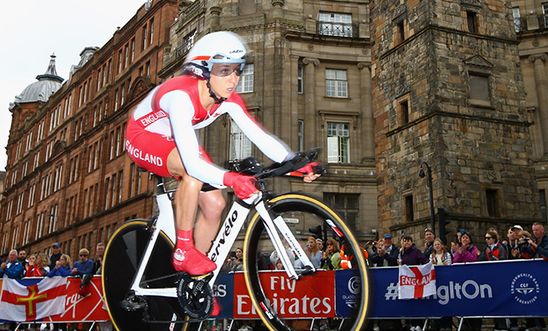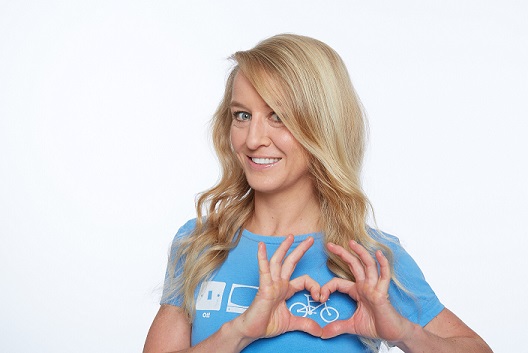
Emma Pooley's top 7 Cycling tips

If you’re new to cycling or 60 miles is a step up in distance for you, here are a few tips to help you prepare.
1. Distance
Start riding your bike regularly now if you don’t already – even one or two rides a week will help. Try to do a long ride every two weeks
or so. That could be just two hours to start with, but try to increase the distance each time until you’re up to 40 or 50 miles in one day.
2. Training
Try to follow a regular routine that will increase your fitness. I found the most fun way to structure my training was to ride with a club or with friends. You can work on different aspects of your fitness on different kinds of training rides. For example, you could designate one ride as interval training, and another as your weekly long ride to improve endurance. If you already have a training plan or you belong to a cycling club, that will provide structure to your cycling. If not, and you want to plan your own training, check out the GCN training tips videos.
3. Saddle
Find a saddle that is comfortable for you. This is a big factor in whether you enjoy (or not!) your training and the event itself. Sadly, the human bottom did not evolve to sit on a bike saddle, and a bit of discomfort is unavoidable. But you will get used to it over time. If you get real pain while cycling, and especially if you get pain passing urine after cycling (apologies, but this is important!), probably your saddle is not right for you.
Saddle choice is very personal, and you should experiment to find the shape that
suits you. Many bike shops will let you test ride different models, so ask to try a different shape.
4. Reliable Bike
Check your brakes, gears and tyres. This is important for safety, and because it can save a lot of time during the event. If you’re not confident doing the checks yourself, most local bike shops offer a check-up service. If you are a whiz in the workshop, you can get tips from the GCN tech channel.
5. Nutrition
Test not just what you’ll eat and drink while riding but also your meals the day before, and your breakfast on the day of the event. In fact, practising your nutrition is just
day of the event. In fact, practising your nutrition is just
as important as practising cycling! Many people are let down by gastrointestinal problems in sports events and this is mostly avoidable. Try out your on-the-bike nutrition in training first, to avoid unpleasant surprises on the day. Then if you find it doesn’t work, you have time to try something else. On-the-bike nutrition does not have to be expensive sports food: anything high in carbohydrate works. Unless you’re riding really hard, fruit, flapjacks or banana will do. Aim for 30-60g carbohydrate per hour, best taken spaced out in little bites. Similarly, drinking is best done in small sips regularly. You can find out more about nutrition here.
6. Clothing
Test your clothing for any weather. Your long ride is a good opportunity to do this. If there’s a risk of rain, take a waterproof jacket in your pocket and maybe even waterproof gloves, if your hands get cold.
7. More Tips
GCN has a wealth of information for cyclists of all levels preparing for a one-day event. Check out the videos.
Our blogs are written by Amnesty International staff, volunteers and other interested individuals, to encourage debate around human rights issues. They do not necessarily represent the views of Amnesty International.
0 comments